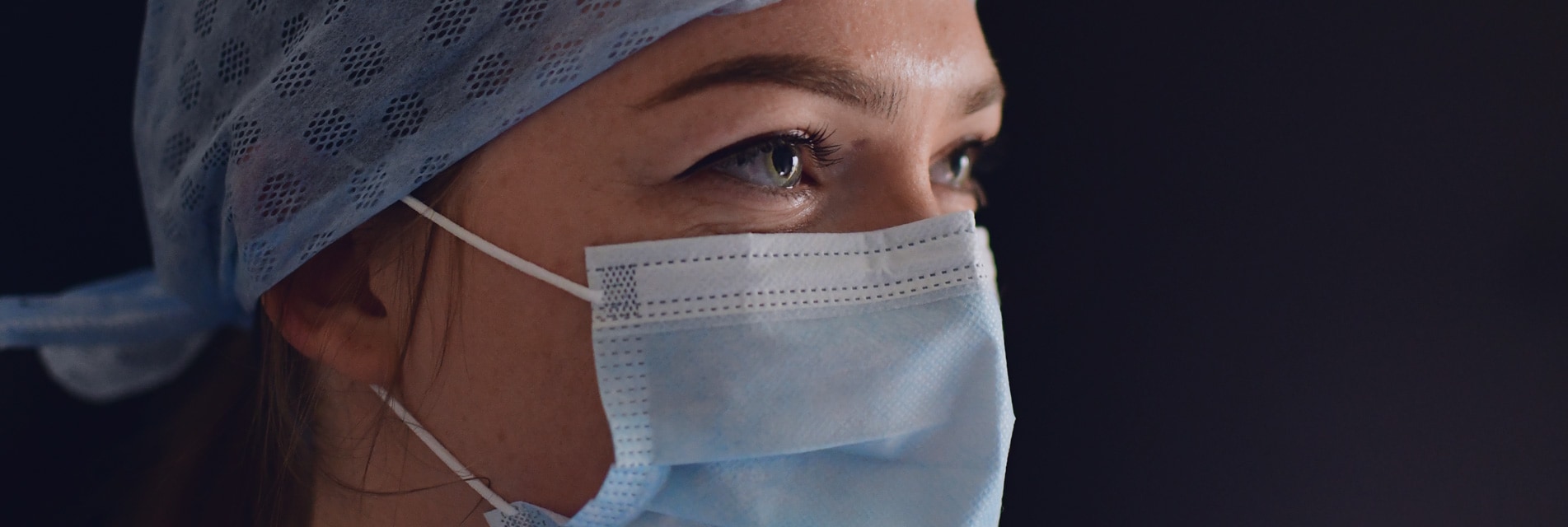As a referral nurse centre, our days at Veterinary Vision are varied and can change rapidly, much like most of the veterinary industry. In theory our days are split into either consulting days or surgical days, although frequently if an emergency consult is seen who needs surgery that day, we work around this smoothly and adapt to the patient's needs.
Consulting days start with a general preparation of the building - air con or heaters on where necessary, setting the washing machine and autoclave on cycles, trigene solution and cloths for the rooms, and loading up the diary and notes for the vets, checking these are up to date, and that the consult rooms are stocked for the day.
Once patients arrive nurses take part in checking intraocular pressures, schirmer tear tests, and generally assisting the vet with the appointment. This includes writing notes, completing dispensing labels for medications, and providing medication charts, letters for clients, preoperative instructions and fact sheets to take home and cleaning between appointments. Where an examination needs further investigations, we assist the vets in this too, this can include assisting with ocular ultrasound, diamond burr, contact lens placement, gonioscopy, intracameral injections or sampling and taking bloods. We also teach owners how to apply drops, and to clean around the eyes safely, and perform nurse consults where suitable.
Surgical operating days

Surgical operating days start similarly to consulting days in the prep of the building but include checking the stock levels in theatre, ensuring the anaesthetic equipment and other equipment is ready and operational, admitting patients for surgery and checking their TPR, placing IV lines, calculating and giving premedication and other medications under veterinary guidance, as well as ensuring patient fluid balance and normothermia is maintained both before, during and post-surgery. We use heated tables in surgery to assist with normothermia maintenance, so these are topped with beds and incontinence sheets to prevent overheating or burns, and have full multiparameter monitoring for every patient.
During surgery, a nurse may be scrubbed in to assist the vet, for example during phacoemulsification of a cataractous lens, or monitoring the surgery and opening equipment for the vets' use. Unlike 'regular' surgical procedures, many of our surgeries are completed through an operating microscope with very fine instruments. For this reason, the video feed of the surgery is usually displayed on a screen in the operating theatre, this helps nurses to assist the vets, and also understand the influence or effect of any anaesthetic changes with the surgery. Recovery of patients after surgery can include repeating intraocular pressure checks and menace responses as well as the usual monitoring of TPR, providing food and water, toileting access and updating clients. Nurse discharges include detailed information on home care, medications, and any concerning signs of ocular pain or complications which may be possible post-surgery.
Between consults and surgeries
Between consults or surgeries we spend our time doing much the same duties as veterinary nurses in other roles; cleaning, packing and autoclaving instruments, deep cleaning the practice, making notes ready for the vets appointments in the future, calling clients to check on patients postoperatively, preparing ocular formulations we maintain in house such as plasma, maintaining stock levels and stock rotation, ordering supplies, recycling where we can to maintain sustainability, handling laboratory samples, preparing for surgeries for the following day and clearing away used supplies or equipment after procedures or surgeries.
At the end of either a surgical or consulting day, we make sure all the practice is fully cleaned, machines and equipment put away safely and prepared for the next day's duties, this can be the notes for the vets and stock levels in consult rooms, or can be the stock levels in theatre and the operating consent forms if the following day sees us in theatre. Theatre prep can be very different due to the volume of specialist equipment used, the drapes, kits, surgical equipment is all very different for each type of surgery, so making sure this is ready the night before surgery definitely speeds up the next day's tasks. We also like to prepare any kennels with beds, blankets and heat mats, with feliway, pet remedy and litter tray and cat castles for our feline inpatients.


LATEST NEWS & UPDATES